Dear readers,
This is my monthly post where I propose some themed reading mixes. You’re invited to choose one and join in this chaotic alternative to book club throughout May. Or if the list brings a related favorite to mind, I would love to hear your recommendations on the theme as well. Comment below, email or send me telepathy—I always reply!
Making one reading list for the more functional two-thirds of an entire continent is no joke. I’m breaking my usual rule of 5 by including 8+ titles, though some are short. Consider this excess my own modest contribution to literary free trade.
In reverse chronological order of publication in English, here’s what I’m smuggling into my brain this month:
The Dance and the Fire (trans. Christina MacSweeney) by Daniel Saldaña París (one of the Bogotá39), comes out in English July 29. If you read Spanish you can find it as El baile y el incendio now. Three childhood friends reunite in Cuernavaca during a season of wildfires. Natalia, the protagonist, prepares a dance inspired by German expressionist Mary Wigman and medieval Danse Macabre (cue the Wikipedia entries). Hysteria ensues. I came to this one via my curiosity about the artistic circles of Catherine Lacey, and it feeds the witchy thread running through this list.
Code Noir by Canisia Lubrin (with art by Torkwase Dyson) recently won the Carol Shields prize and named one of the CBC’s Best Canadian Fiction of 2024 titles. Based on King Louis XIV’s decrees defining the conditions of slavery in the French Colonial Empire, it’s fifty-nine linked fictions spanning fantasy, contemporary realism and historical genres, each accompanied by a black-and-white drawing.
The Other Valley, Scott Alexander Howard’s debut, is set in a valley, bordered by two other valleys— one 20 years behind, and one 20 years ahead. In this world where geographical travel is also time travel, Odile, perhaps nobody’s first choice for anything, vies for a coveted position on the Conseil. If she earns the job, she will decide who can cross the heavily guarded borders. Acquired by Working Title Television for series development.
Best known in the U.S. for her novel Hurricane Season, which was shortlisted for the International Book prize in 2020, Fernanda Melchor has been compared to Faulkner and Bolaño for her writing about rural poverty, misogyny and violence. This is Not Miami (translated by Sophie Hughes) is a book of crónicas, a distinctive form of Latin American literary journalism, and relatos, vignettes retold based on the dramatic stories of witnesses in Melchor’s city of Veracruz. These include “The House on El Estero,” about supernatural happenings, as well as the story of a beauty queen who committed infanticide and the titular account of a group of refugees surprised to realize they’d arrived on the Mexican gulf coast rather than their intended destination. Most were published in magazines in the early aughts, and then as a collection in 2013, a decade before this translation.
I recently read Canadian author El-Mohtar’s newest title, The River Has Roots, thinking I would include it here. But it was very much a fairy tale which is hard for me to recommend to anyone as a hardcover book. It reminded me that I have a copy of This Is How You Lose the Time War, El-Mohtar’s Hugo winning collaboration with Max Gladstone (not Canadian) on my shelf that I’ve not yet read. A hugely popular sapphic time-travel fantasy love story set “in the ashes of a dying world,” with my favorite bird on the cover— it’s about time.
Last June I wrote about Cristina Rivera Garza’s 2024 Pultizer prize winning memoir/investigation of her sister’s murder, Liliana’s Invincible Summer. Though only recently well-known in the U.S., Rivera Garza has been recognized twice with the Sor Juana Inés de la Cruz Prize, the most important prize for women authors in Mexico, and she has also been recognized with a number of other important international Spanish-language prizes (Premio Iberoamericano de Letras José Donoso and the Premio Roger Callois). This short gothic novel The Iliac Crest (translated by Sarah Booker) plays with the literary and political histories of Mexico. On a dark and stormy night, two women invade an unnamed narrator’s house to harass him, claiming to know his deepest secret: that he is in fact, a woman. That sounds terrible— but it has also been described as a dynamic inquiry into language and gender that’s “willfully queer.” I’m intrigued.
Herrera’s Signs Preceding the End of the World was the best book under 200 pages I read last year. In this follow up, a hard-boiled hero attempts to broker peace among two feuding families to arrange an exchange of the bodies they’re holding hostage, as a plague spreads through the city. This compact response to the violence of contemporary Mexico boils Romeo & Juliet down to its essence.
The Stone Diaries by Carol Shields won the 1995 Pulitzer. When I read it a couple of years later, at the tender age of 24, I was simultaneously horrified and fascinated by the fictional autobiography of Daisy Goodwill Flett. Her story suggested that everything and everyone important to me at this tender age could become insignificant, barely remembered. Life may turn out to be series of “mini-lives,” intentionally or through the inertia and loss inherent in living. Shortly thereafter, I had my quarter-life crisis, left my boyfriend and moved to South America for three years. I became a sucker for a fake biography and have considered this one of my favorite books since. Twenty-five years later seems like a good time to re-read it and see how it holds up.
So tell me…
What are you reading?
Have you already read any of these? Which are you interested in?
Who are your favorite Mexican or Canadian Substackers I should follow?
Do you love sister stories/fairy tales and want my copy of The River Has Roots? Message me and I’ll pass it on!
Or should I put it in the Little Free Library? May 11-17 is Little Free Library week and I am excited to clear out my shelves and contribute to the two in my neighborhood. I loved this post from
about how she chooses which books/authors to read, and how she discovered Philip Roth.


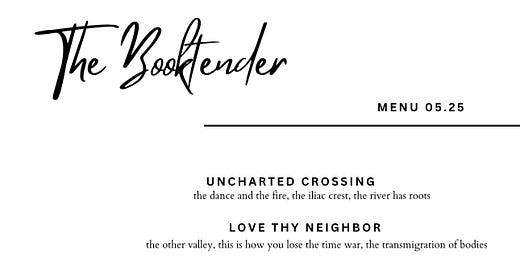


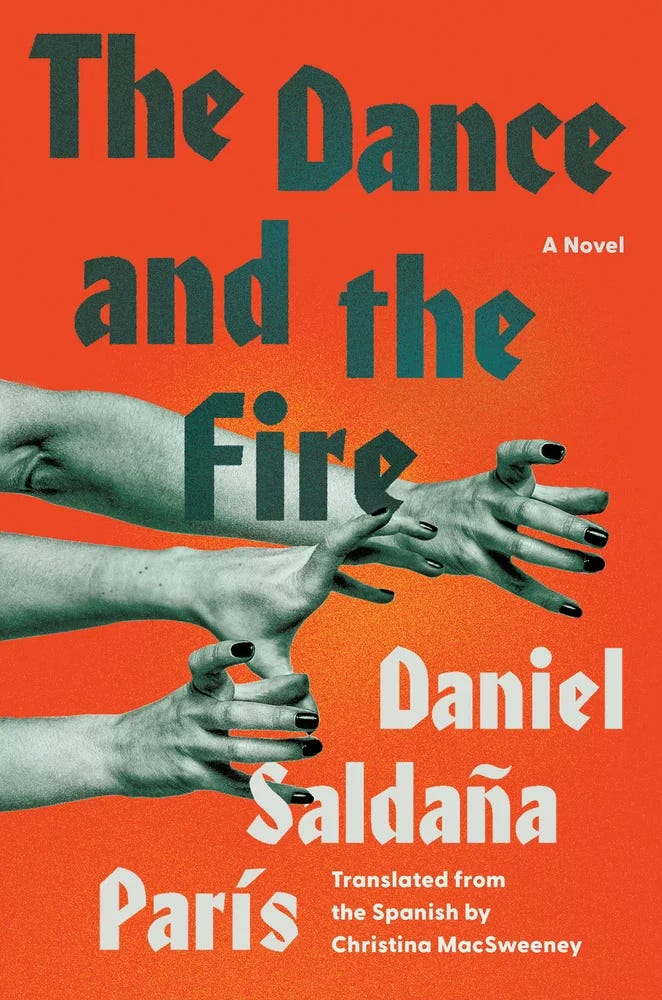

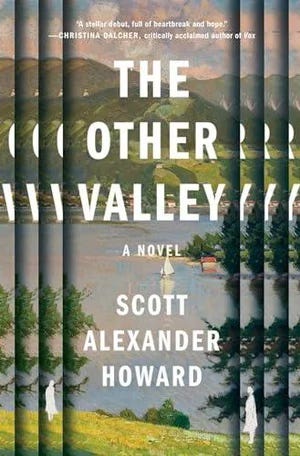

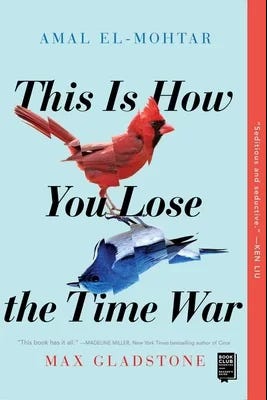
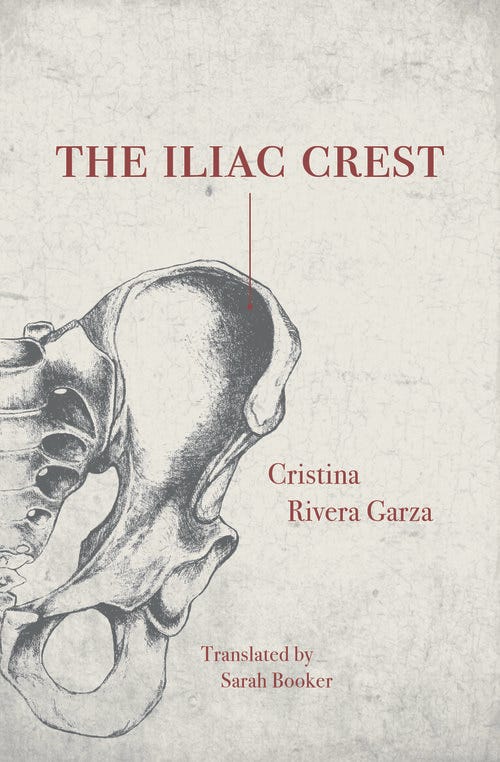
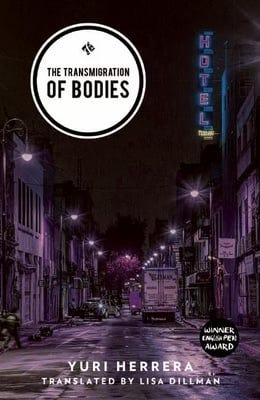
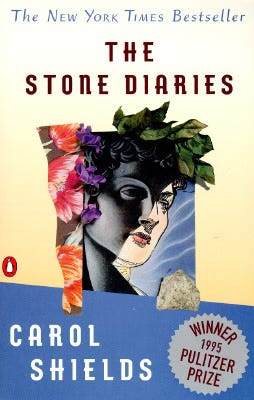
Iona Whishaw — Canadian mystery author. https://ionawhishaw.ca/
Since retiring from a much-honored career as a high school principal in Vancouver, Iona has written a dozen novels set in post-WWII British Columbia. Her central figure, Lane Winslow, is based on Iona’s mother, who had been a British spy during the war. The latest book in the series, “The Cost of a Hostage,” was released last week and is #6 on the Toronto Globe & Mail Canadian best seller list.
Adding The Iliac Crest to my TBR!